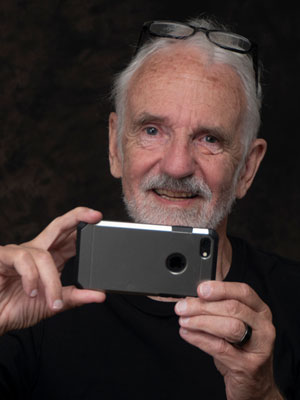Brian Clark O’Connor Scholarship
About Dr. Brian O'Connor

Brian O’Connor’s research is characterized by his long-term interest in philosophical foundations of information science. He studied with philosopher of information Patrick Wilson at UC Berkeley exploring how we might better enable seekers to find relevant information. This led to his basic research on fundamental notions of how one thing stands for another. In 1998 he brought this commitment to his work coordinating UNT’s young Information Science Ph.D. program, which was started under the inspiring leadership of Professor Don Cleveland. When he assumed that role, he wrote the official program description: “The Doctor of Philosophy, Ph.D. is a research degree. It is awarded in recognition of original scholarship and the generation of new knowledge by immersion in a topic, analysis, synthesis and creativity.” As program coordinator and as chair or co-chair of more than 80 doctoral dissertations he has had the privilege of working with a wide variety of students. The number and quality of the dissertations prompted Professor Ron Day (Indiana University) to name O’Connor a “leading figure in Ph.D. production in Library and Information Science departments and schools.” Brian considered his students as colleagues, which reveals his deep respect for them, while fostering their intellectual passion and honing their creative and research skills. Several of his books and peer-reviewed articles are co-authored with former students.
Professor Johanna Drucker (UCLA) depicts Dr. O’Connor’s research as sitting at “the intersection of several important issues and concepts: 1) search and retrieval procedures, particularly within automated systems; 2) image identity and epistemology as an information problem or challenge; 3) focus on photography and video as an object of study within formalized and computationally tractable approaches.” His vivid interest in images—O’Connor was also a film maker—led him to establish the Visual Thinking Lab. Professor Gary Marchionini (University of North Carolina) notes that O’Connor’s “theory of visual expression and interaction between words and visual language [has done] more than perhaps any other individual in our field to conceptualize the elements of visual communication and incorporate them into retrieval environments.”
After all, what would be the value of the passion for knowledge if it resulted only in a certain amount of knowledgeableness and not, in one way or another and to the extent possible, in the knower's straying afield of himself?
How To Donate
To honor Brian O’Connor, you can make a donation to the Brian Clark O'Connor Scholarship.